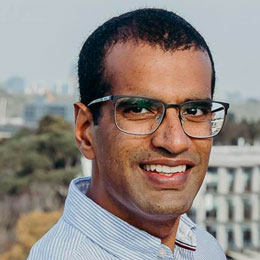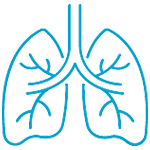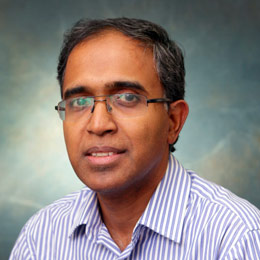This website uses cookies so that we can provide you with the best user experience possible. Cookie information is stored in your browser and performs functions such as recognising you when you return to our website and helping our team to understand which sections of the website you find most interesting and useful.
This section provides information about lung cancer care
This includes its causes, risk factors, symptoms, how it is diagnosed and the different types of lung cancer treatments available.
About lung cancer
Your lungs are an important part of your respiratory system, which your body uses to breathe. Lung cancer starts in your lungs as your cells grow abnormally.
If you have cancer in your lungs that has spread from another part of your body like your breast, it is still breast cancer and you should read the information about your type of primary cancer.
Lung cancer facts
- In the UK, around 43,500 people are diagnosed with lung cancer every year [1]
- Lung cancer is most common in 70 to 74-year-olds [2]
- Smoking causes around nine out of ten lung cancer cases. [3]
What is lung cancer?
When lung cancer starts in your lungs, it’s called primary lung cancer. There are a few different types of primary lung cancer, which are put into two main groups:
- small cell lung cancer
- non-small cell lung cancer.
When cancer spreads into your lungs from somewhere else in your body, it’s called secondary lung cancer. If you’ve had another type of cancer and you’ve been diagnosed with lung cancer, ask your consultant where it started. [4]
1 Cancer Research UK, Lung cancer risks and causes http://www.cancerresearchuk.org/cancer-help/type/lung-cancer/about/lung-cancer-risks-and-causes
2 NHS Choices, Introduction to lung cancer http://www.nhs.uk/conditions/cancer-of-the-lung/Pages/Introduction.aspx
3 NHS, Lung cancer myths and facts http://www.nhs.uk/Livewell/Lungcancer/Pages/
Lungcancermythsandfacts.aspx
4 Cancer Research UK, Types of lung cancer http://www.cancerresearchuk.org/cancer-help/type/lung-cancer/about/types-of-lung-cancer
Types of lung cancer
Small cell lung cancer and non-small cell lung cancer are the two main groups of primary lung cancer.
Small cell lung cancer
Small cell lung cancer is sometimes called oat cell cancer. Under a microscope, the cancer cells look small and filled by the nucleus, which is where it gets its name. Around three out of twenty-five lung cancer cases are small cell lung cancer.[5] It’s often caused by smoking. It’s unusual for someone who’s never smoked to get small cell lung cancer.
Non-small cell lung cancer
In the UK, non-small cell lung cancer makes up around 87 out of 100 lung cancer cases. [6] There are three different types, although sometimes diagnosing which type you have isn’t possible if not many cells were taken during a biopsy or if the cells are undeveloped. If this is the case, your consultant will tell you that you have undifferentiated non-small cell lung cancer. Because this group of cancers tend to behave in a similar way, it won’t usually influence the type of treatment you need. The three types of non-small cell lung cancer are:
Squamous cell cancer: This cancer is usually caused by smoking and develops in the cells lining your airways. It’s the most common type of primary lung cancer.
Adenocarcinoma: This type of lung cancer is becoming more common in the UK. It develops in the lining of your airways from a type of cell that produces mucus.
Large cell carcinoma: Under a microscope, the cells look large and rounded.
Secondary lung cancer: If your lung cancer has spread from elsewhere in your body, your choice of treatment will depend on where those cancer cells came from. So if you had breast cancer, the cancer cells in your lungs are breast cancer cells will be treated with treatments for breast cancer.
Mesothelioma: This type of cancer is quite rare but becoming more common. It affects the tissue that protects your lungs called the pleura. Many cases are caused by exposure to asbestos at work, which is why it’s thought give times as many men as women get this type of cancer.
5 Cancer Research UK, Types of lung cancer http://www.cancerresearchuk.org/cancer-help/type/lung-cancer/about/types-of-lung-cancer (simplified fraction from 12 out of 100).
6 Cancer Research UK, Types of lung cancer http://www.cancerresearchuk.org/cancer-help/type/lung-cancer/about/types-of-lung-cancer
Causes and risk factors
Smoking is the biggest cause of lung cancer. It is estimated that around nine out of ten cases are because of smoking.[7]
This includes a small number of people who get lung cancer from breathing in second-hand smoke. Other risk factors include:
- getting older
- exposure to radon gas
- exposure to chemicals like asbestos, silica and diesel exhaust
- air pollution
- having lung disease
- a family history of lung cancer
- previous cancer treatment
- low immunity from illnesses like HIV and AIDS, or from taking immunosuppressant drugs.
7 NHS, Lung cancer myths and facts
Lung cancer symptoms and diagnosis
Symptoms of lung cancer include:
- a cough that doesn’t go away
- feeling breathless or wheezy
- aches and pains when you cough or breathe
- coughing up phlegm with blood in it
- a loss of appetite
- losing weight
- feeling tired.
If you notice any of these symptoms have lasted for three weeks or more, you should see a doctor or respiratory consultant. They’ll look into your symptoms and might run a few tests with you to check your breathing.
Diagnosing lung cancer
To properly diagnose you, you might need to have X-rays and routine blood tests. Usually your doctor or respiratory consultant will arrange these. You may then need to have some other tests at a hospital. These include:
CT scans give detailed pictures of the inside of your body by taking X-rays.
A bronchoscopy is when a doctor uses a small, flexible tube called a bronchoscope to look down your throat and into your airway.
Biopsy means you’ll have a sample of cells taken from your lungs during a bronchoscopy and looked at more closely.
Stages of lung cancer
After your tests, your doctor or respiratory consultant will tell you what stage your lung cancer is at. This describes how big your tumour is, and if it has spread. This will influence the type of lung cancer treatment you’re offered.
- Stage 1, localised: The cancer’s small and only in one part of the lung
- Stages 2 and 3, locally advanced: The cancer’s larger and may have spread to the tissue around your lungs. Cancer cells might also be found in the lymph nodes
- Stage 4, metastatic cancer: The cancer’s spread elsewhere in your body.
You can read more about the stages of lung cancer on Cancer Research UK’s website.
Lung cancer treatments
The type of treatment you’re offered depends on the type of lung cancer you have and whether the cancer has spread. The most common lung cancer treatments are surgery, chemotherapy, radiotherapy or a combination.
- Chemotherapy uses drugs to interrupt the growth of the cancer cells
- Radiotherapy uses high-energy rays to get rid of cancer cells
- Surgery is mostly used for non-small cell lung cancer.
Follow-up treatment
You’ll need regular check-ups. Your doctor or respiratory consultant will examine you, listen to your chest and ask how you are and whether you’ve noticed any new symptoms.
How often you have check-ups depends on what treatment you had. Straight after chemotherapy, radiotherapy or surgery you’re likely to need an appointment every two to six weeks, then at regular intervals.
Paying for your treatment
You have two options to pay for your treatment – your costs may be covered by your private medical insurance, or you can pay for yourself. Check with your private medical insurer to see if your diagnostic costs are covered under your medical insurance policy.
If you are paying for your own treatment the cost of the procedure will be explained and confirmed in writing when you book the operation.
Ask the hospital for a quote beforehand, and ensure that this includes the consultants’ fees and the hospital charge for your procedure.
Want to know more?
If you’d like to read more about lung cancer, treatment or living with lung cancer, please visit cancerresearch.org.uk.
Lung cancer
Medical Team
Specialising in Lung Cancer Treatments
Consultant Clinical Oncologist

Dr Tony Mathew
Consultant Clinical Oncologist in Gynaecological and Lung cancer
MBChB MRCP FRCR
Personal Profile
- 22 month Clinical Research Fellowship in Radiation Oncology in Melbourne Australia focused on Gynaecological and lung cancer radiation therapy
- 3rd prize oral presentation in 3 day British Joint and Limb Reconstruction national conference for research on ‘Plastic Deformation of Regenerate bone in achondraplasia – Risk analysis!’
- I have held the title of Honorary Clinical Teacher within the academic unit of medical education for 1 year within the University of Sheffield
Research Experience
- Principal investigator for numerous cancer clinical trials in STH.
- Research project ‘Consistency of ESTRO and RTOG contouring guidelines for target volume delineation in early breast cancer’ published in International Journal of Radiology & Radiation Therapy on 21/08/2020.
Gynaecological and lung cancer management experience
- Clinical research fellowship for 2 years in Austin health hospital, Melbourne in gynaecological and lung radiation oncology and gynae brachytherapy.
- Consultant in clinical oncology for gynaecological cancers in Sheffield teaching hospitals from November 2020 to present. Managing and initiating systemic therapy and managing and initiating radiation therapy and brachytherapy.
- Consultant in clinical oncology for lung cancers in Sheffield teaching hospitals from November 2020 to present. Managing and initiating systemic therapy and managing and initiating radiation therapy and stereotactic radiotherapy to the lung.
Consultant Clinical Oncologist
Get in touch
Request an appointment with one of our specialists:
Call us
0114 4381 412





